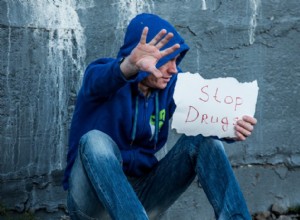
مقال بمساهمة من فريق Timberline Knolls
بالنسبة للعديد من الأفراد في جميع أنحاء العالم ، يعد تناول الكحول جزءًا معتادًا من الحياة اليومية:تناول كأس من النبيذ مع العشاء ، أو مشاركة البيرة مع الأصدقاء في ساعة سعيدة بعد العمل ، أو تناول الكوكتيلات في مناسبة خاصة. ومع ذلك ، بالنسبة للعديد من البالغين والمراهقين ، فإن الكحول هو وسيلة العلاج الذاتي لصراعاتهم مع اضطراب ما بعد الصدمة (PTSD) الذي يمكن أن يضر بشدة بنوعية الحياة ويؤدي إلى الوفاة المبكرة.
تزيد الاضطرابات النفسية الموجودة مسبقًا مثل الاكتئاب الشديد والاعتماد على النيكوتين من التعرض لاضطراب ما بعد الصدمة. في نفس الوقت ، فإن الإصابة باضطراب ما بعد الصدمة يزيد من خطر الإصابة بالاكتئاب الشديد لأول مرة. إدمان الكحول والمخدرات والتدخين.
معدلات اضطراب ما بعد الصدمة وإدمان الكحول
أظهرت الأبحاث أن الأفراد الذين يعانون من اضطراب ما بعد الصدمة كانوا أكثر عرضة للإدمان بمرتين إلى أربع مرات من أقرانهم الذين لا يعانون أيضًا من اضطراب ما بعد الصدمة.
علاوة على ذلك ، في دراسة استقصائية كبيرة لأشخاص من المجتمعات في جميع أنحاء الولايات المتحدة ، وجد أن 34.5 في المائة من الرجال الذين أصيبوا باضطراب ما بعد الصدمة في مرحلة ما من حياتهم يعانون أيضًا من مشكلة تعاطي المخدرات أو الاعتماد عليها خلال حياتهم. تم العثور على معدلات مماثلة (26.9 في المئة) للنساء المصابات باضطراب ما بعد الصدمة في مرحلة ما من حياتهن.
ومع ذلك ، لوحظت فروق ذات دلالة إحصائية بين الرجال والنساء الذين يعانون من إدمان الكحول مع تاريخ إذا كان اضطراب ما بعد الصدمة. وجد كيسلر وآخرون أن 27.9 في المائة من النساء اللائي لديهن تاريخ من اضطراب ما بعد الصدمة أبلغن عن تعاطي الكحول في مرحلة ما من الحياة ، ما يقرب من ضعف عدد الرجال الذين يمثلون 51.9 في المائة ، ممن لديهم تاريخ من اضطراب ما بعد الصدمة ، أبلغوا عن مشاكل مماثلة.
اضطراب ما بعد الصدمة وعوامل خطر إدمان الكحول
 بينما من المحتمل أن تتشابك العوامل المختلفة وتؤثر على خطر أن يكون لدى الشخص ميل لتعاطي الكحول ، فمن المهم لفحص مثل هذه الظروف على أساس فردي.
بينما من المحتمل أن تتشابك العوامل المختلفة وتؤثر على خطر أن يكون لدى الشخص ميل لتعاطي الكحول ، فمن المهم لفحص مثل هذه الظروف على أساس فردي.
اضطراب ما بعد الصدمة هو حالة صحية عقلية تترافق غالبًا مع إدمان الكحول. 50 to 66 percent of those who suffer from PTSD also simultaneously struggle with alcoholism, as reported by an article in Times. The reverse also held true.
It is a potentially debilitating condition that can develop following the experience of a traumatic event, such as a serious accident, natural disaster, combat exposure, family violence, emotional abuse, physical or sexual abuse and/or assault, terrorist attack, and more.
Individuals who suffer from PTSD can experience flashbacks, struggle with hyperarousal, have difficulty sleeping or concentrating, experience increased feelings of distress, anxiety, despair, and depression, and avoid certain activities and relationships.
Many individuals with PTSD may turn to drug or alcohol use as a means of creating a temporary escape from the difficulties they experience as a result of this mental health disorder.
PTSD sufferers may attempt to “medicate” themselves with alcohol or turn to drinking as a means of coping with the overwhelming amount of stress and/or bad memories they may be reliving on a daily basis.
While alcohol may seem like an effective solution for managing symptoms related to PTSD, it can, in fact, worsen the condition and lead to many more adverse effects.
Biology and Genetics in Post Traumatic Stress Disorder &Addiction
 Young brains that are still developing toward their full potential, may be at a higher risk for developing PTSD as a result of trauma and for addiction later in life due to early exposure to drug abuse.
Young brains that are still developing toward their full potential, may be at a higher risk for developing PTSD as a result of trauma and for addiction later in life due to early exposure to drug abuse.
Environmental influences, biological elements, and genetics can also play a part in the formation of both disorders. Post Traumatic Stress Disorder and drug abuse commonly co-occur with other mental health disorders. Research has shown that influences related to genetics in major depression, panic disorder, addiction, and generalized anxiety share up to 60 percent of the genetic variance seen in PTSD.
Parts of the brain that make a person more vulnerable to developing PTSD after a stressful or traumatic event may then be similar to those that may predispose a person to addiction. In addition, chronic stress heightens a person’s vulnerability to addiction and makes them more prone to relapse
PTSD &Seeking Appropriate Help for Co-Occurring Disorders
Substance Use disorders, such as alcoholism that occur alongside a mental health disorder, such as PTSD and eating disorders, are categorized as co-occurring disorders. If you or a loved one has been dealing with both alcoholism and PTSD, it is crucial to look for a substance abuse treatment program that adequately addresses both of these conditions.
Numerous symptoms of these disorders overlap and often stem from similar factors. Treating both of these conditions simultaneously has been shown by research to improve prognosis and increase the effectiveness of care.
Treatment programs that offer collaborative care and comprehensive treatment approaches can be an invaluable part of recovery for the individual suffering with both PTSD and alcohol use disorder.






